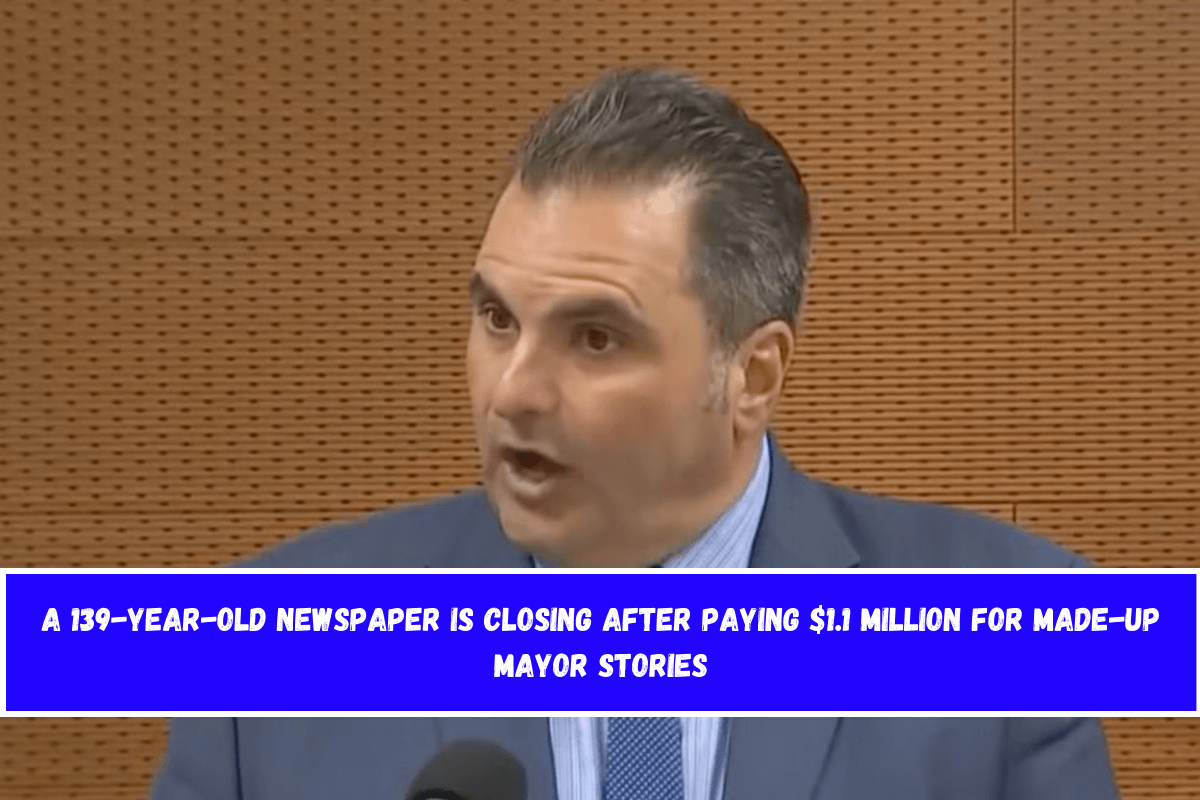A 139-year-old Massachusetts newspaper was due to publish its final edition Wednesday after agreeing to a $1.1 million settlement in a defamation action filed by the mayor of Everett, who accused the publication of faking quotes as part of a nasty smear campaign.
“What the Everett Leader Herald, its owner, and its publisher and editor did to my family and me — publishing article after article, accusation after accusation about me that they knew were false, that they knew had no basis, for the avowed purpose of destroying my reputation to serve their own personal financial interests — was more than just dishonest. “It was corrupt,” Everett Mayor Carlo DeMaria stated during a press conference following the settlement.
The settlement, announced Monday, brought to an end a defamation suit filed in 2021 by DeMaria against the Leader Herald’s publisher and editor, Joshua Resnek, and owner, Mathew Philbin, accusing them of habitually publishing fraudulent articles.
The pieces branded the mayor “Kickback Carlo” and accused him of accepting bribes and extortion.
During the lawsuit, Resnek admitted to attempting to “drop bombs” on the mayor by writing false stories ahead of a mayoral primary.
According to the complaint, the men went after DeMaria in retaliation for the mayor’s failure to support Philbin’s commercial interests.
Every week, 52 times a year, I create the Leader Herald… The mayor is my enemy… Every week, I take two days away from vital writing to make this s***,” Resnek stated in one email cited in court filings, according to Boston.com.
The Independent has contacted Resnek for comment.
He apologized for his conduct last year, stating that he was “embarrassed.”
The Independent was unable to reach Philbin for comment.
With the demise of the Leader Herald, which began printing in 1885, the city is down to two local news publications.
“It will be very hard to find either local paper writing anything that isn’t pro-mayor or pro-administration,” Everett resident Paula Sterite told WGBH this week. “We’re stuck with propaganda.”
Observers said the case was a textbook example of defamation, which requires proving a someone has “actual malice” in intentionally spreading false information that harms someone’s reputation.
“You will not find a clearer example of actual malice,” said Northeastern journalism professor Dan Kennedy in a recent blog post.
DeMaria’s counsel expressed concern that the newspaper’s fabrications may further erode Americans’ trust in journalism.
“I, like others, notice Americans’ lack of trust in the media, whether rightly or wrongly, or both,” Jeff Robbins told the Boston Globe. “This is the kind of set of facts which really does damage to journalists who work their tails off to do the right thing.”











Leave a Reply